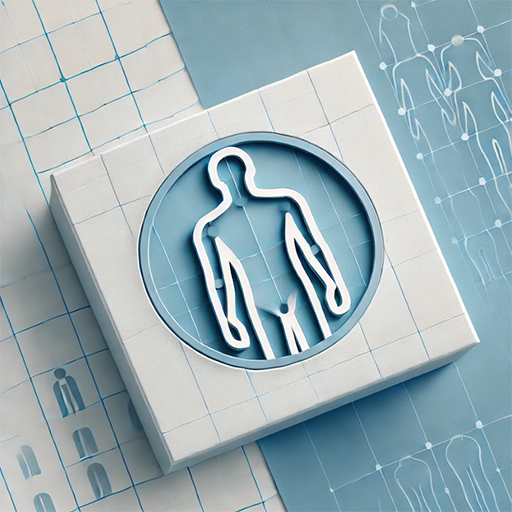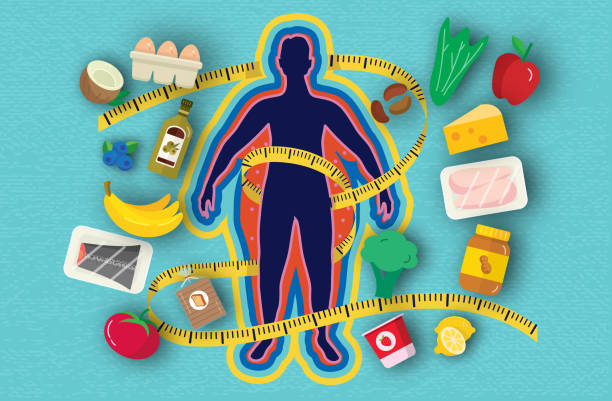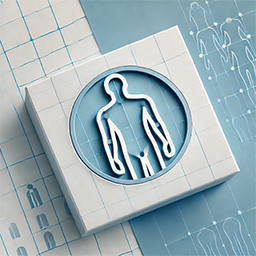Introduction: The Missing Piece in Weight Loss
When people talk about losing weight, they often focus on food and workouts. But there’s a part many forget—your mind. Your mental health plays a big role in your ability to lose weight and keep it off. Stress, anxiety, and low mood can lead to emotional eating, skipped workouts, or poor sleep.
These habits make weight loss harder. On the other hand, a strong mindset helps you stay motivated, make better choices, and bounce back from setbacks. Taking care of your mental health is just as important as counting calories or hitting the gym.
If you feel stressed, sad, or unmotivated, it can be harder to make healthy choices. On the flip side, when your mind is in a good place, your body often follows.
Let’s explore why your mental health matters just as much as what’s on your plate or how many steps you take each day.
The Mind-Body Connection in Weight Loss
How Mental Health Affects Physical Health
Your brain and body are always talking to each other. When you feel anxious or depressed, your body can react in ways that make weight loss harder. These mental health struggles can affect your hormones, habits, and motivation. For example:
Stress releases cortisol, a hormone that can lead to belly fat. High cortisol levels may also increase cravings for sugary or fatty foods.
Depression lowers energy, making it hard to stay active. You may skip workouts, spend more time sitting, or lose interest in healthy routines.
Anxiety affects sleep, which can slow your metabolism. Poor sleep can also increase hunger hormones, making it harder to control your appetite.
Even if you’re eating right and exercising, poor mental health can block progress. That’s why treating your mind with care is just as important as taking care of your body.
According to the National Institute of Mental Health, nearly 1 in 5 adults in the U.S. lives with a mental illness.

Emotional Eating: More Than Just Cravings
What Is Emotional Eating?
Have you ever grabbed a snack when you were sad, bored, or stressed—not actually hungry? That’s called emotional eating. It means using food to handle your feelings instead of feeding real hunger.
This can lead to:
- Weight gain over time
- Guilt or shame after eating
- A cycle of stress and overeating
It’s not about weak willpower. It’s about finding better ways to deal with emotions. Learning healthy habits like deep breathing, journaling, or taking a walk can help break the cycle and put you back in control.
How to Break the Habit
Here are a few tips:
- Pause before eating. Ask: “Am I truly hungry?”
- Write in a journal. Track when and why you eat.
- Find new outlets. Try deep breathing, a walk, or calling a friend.
Stress and Weight Gain: A Hidden Link
Stress doesn’t just make you feel bad—it can make you gain weight, too. When you’re stressed, your body releases a hormone called cortisol. High cortisol levels can make you crave sugary, fatty foods. Stress can also lead to emotional eating and poor sleep, which can slow your metabolism and cause weight gain over time.
Why Stress Makes You Eat More
When you’re stressed, your body goes into “fight or flight” mode. That means:
- More cravings for sugar and fat
- Trouble sleeping
- Less motivation to move
Over time, this can lead to weight gain and poor health.
Research from Harvard Health shows that chronic stress is linked to unhealthy eating habits and obesity.
How to Manage Stress Better
- Practice mindfulness. Try 10 minutes of meditation each day.
- Get enough sleep. Aim for 7–9 hours a night.
- Exercise regularly. Even a short walk helps release stress-fighting chemicals.
Self-Esteem and Body Image
How You See Yourself Affects Results
If you don’t believe in yourself, it’s hard to stay motivated. Many people feel shame about their body, which can stop them from even starting. Low self-esteem can make weight loss feel impossible, even when the tools and support are there.
Signs of poor self-esteem:
- Negative self-talk (“I’ll never lose weight.”)
- Avoiding mirrors or photos
- Skipping workouts due to embarrassment
- Comparing yourself to others in a harsh way
Changing how you think can be just as important as changing what you eat. Building self-confidence takes time, but small wins, positive affirmations, and support from others can help you push forward.
Boosting Confidence on Your Journey
- Celebrate small wins. Did you walk today? That counts.
- Speak kindly to yourself. Replace “I can’t” with “I’m trying.”
- Surround yourself with support. Join a positive online group or talk to a coach.
Depression, Anxiety, and Weight Fluctuations
Mental Health Conditions Can Affect Weight
Depression may make you eat more—or not at all. Some people turn to food for comfort, while others lose their appetite completely. Both can throw off your eating habits and lead to weight gain or loss.
Anxiety might keep you up at night or stop you from going to the gym. Lack of sleep affects your hormones, increases cravings, and drains your energy. Skipping workouts due to fear or stress can slow your progress.
These ups and downs can cause weight to shift. Your body reacts to what your mind is going through. That’s why taking care of your mental health is key to steady, healthy weight loss.
The CDC notes that people with depression are more likely to be obese, and vice versa.
This isn’t your fault. And you’re not alone.
What You Can Do
- Talk to a professional. A therapist or counselor can help you build better habits.
- Consider medication. Some mental health meds can affect weight, but not all.
- Be patient. Healing takes time—and so does healthy weight loss.

Motivation and Mindset Matter
Why Mindset Is Everything
Weight loss isn’t just about following a plan. It’s about believing you can do it—even when it’s hard. Motivation will come and go, but a strong mindset keeps you moving forward. When you believe in yourself, you’re more likely to stick with healthy habits, even on tough days.
A positive mindset helps you:
- Stay consistent with meals and workouts
- Bounce back after setbacks instead of giving up
- Enjoy the journey, not just the result
- Focus on progress, not perfection
Training your mind is just as important as training your body. Confidence grows with every small win.
Build a Mindset That Supports Your Goals
- Set realistic goals. Try losing 1–2 pounds per week.
- Focus on progress, not perfection.
- Use affirmations. Say something kind to yourself each morning.
How Therapy Can Help You Lose Weight
It’s Not Just “In Your Head”
Working with a therapist can help you understand the “why” behind your eating and lifestyle habits. Therapy can help you:
- Identify emotional triggers
- Build healthy coping skills
- Stay accountable
Types of therapy that work well for weight loss include:
- Cognitive Behavioral Therapy (CBT)
- Mindfulness-Based Stress Reduction (MBSR)
You don’t need to have a mental illness to benefit from therapy. Sometimes, talking things out is the first step to change.
Lifestyle Changes That Support Mind and Body
Habits That Boost Both Physical and Mental Health
- Eat whole foods. They fuel your brain and body. Fruits, veggies, lean protein, and whole grains give you the nutrients you need to feel full, stay focused, and keep your energy up.
- Move daily. Exercise improves mood and burns calories. Even a short walk can boost your mental health, reduce stress, and help your body burn fat more efficiently.
- Connect with others. A support system reduces stress. Talking to friends, joining a group, or working with a coach can keep you motivated and help you stay on track.
- Sleep well. Lack of rest affects hunger and energy. Poor sleep can increase cravings and make it harder to stick to your plan. Aim for 7–9 hours each night to help your body recover and your mind stay clear.
- Drink water. Dehydration can feel like hunger or fatigue. Drinking enough water each day helps your body work better, keeps you full, and supports your weight loss goals.
These changes may seem small, but they add up fast. Simple, steady habits can lead to real, lasting results.

When to Seek Help
It’s okay to need support. You’re not weak—you’re human.
Signs It’s Time to Reach Out
- You feel overwhelmed by food or your body image
- You’ve tried everything but nothing sticks
- You’re struggling with depression, anxiety, or stress
Start by talking to:
- A mental health professional
- Your primary care doctor
- A registered dietitian
- A certified health coach
Conclusion: Real Change Starts Within
Weight loss isn’t just about counting calories or lifting weights. True, lasting change begins in the mind. When you take care of your mental health, your physical health often follows. A clear, focused mind helps you make better choices, stick to your goals, and stay consistent—even when things get tough.
Be kind to yourself. You’re doing more than trying to lose weight—you’re working on becoming the best version of yourself, inside and out. That means giving yourself grace on hard days, celebrating small wins, and staying patient through the process. Mental strength builds habits that lead to real results.
What’s one mental habit you’d like to work on during your weight loss journey?
Share it in the comments below or start a journal entry today.
You deserve to feel great—inside and out!



